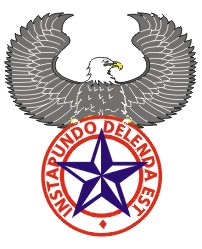Taranto replies
James Taranto has responded. For those new to my blog, on February 16 I speculated that Taranto was the author of the unsigned WSJ editorial that characterized blogosphere critiques of Eason Jordan as "vendettas of amateurs." I appreciate the traffic from Taranto's reply; here is what he wrote:
Amateur HourTaranto's reply prompts a few thoughts:
Blogger "David M" wants to know who wrote Monday's Wall Street Journal editorial on the Eason Jordan kerfuffle, which caused a blogosphere brouhaha with its references to bloggers as "amateurs":
[Excerpt from my post omitted]
David forwarded us his blog entry, asking if we did indeed write the editorial. That is a question we cannot answer, for Journal policy is to keep the authorship of editorials confidential. An exception is made when editorial writers are nominated for prizes--which means that bloggers who wish to learn who wrote this editorial should be rooting for the author to win a Pulitzer.
Isn't this a perfect example of how bloggers are amateurs (amateur: "one who engages in a pursuit, study, science, or sport as a pastime rather than as a profession")? If David enjoys puzzling over the authorship of newspaper editorials, more power to him--but it's hard to imagine anyone making a living that way.
There's also something sweet in how the bloggers have taken such offense at the editorial. Rather than bask in their victory, they are focused on letting the world know how much they crave the approval of the big boys at the Journal.
- This seems as close as Taranto can come, without violating Journal policy, to a public acknowledgment that he wrote the editorial.
UPDATE: Taranto replies via e-mail:Of course, in response to No. 1, it's also the closest I could come to a public acknowledgment that someone else wrote the editorial. Cheers, James
- In his reply, Taranto sets up and destroys a strawman. He defends the use of amateurs to describe bloggers, arguing that bloggers are generally unpaid for their efforts (true enough, with some notable exceptions like, well, Taranto). But the blogosphere's quibble was not with the Journal's characterization of bloggers as unpaid, rather the quibble was with the Journal's characterization of bloggers as incompetent (amateur: "one lacking in experience and competence in an art or science"). The editorial stated that chief among CNN's obligations was
to show the good judgment and sense of proportion that distinguishes professional journalism from the enthusiasms and vendettas of amateurs.
This is ambiguously impugning the judgment of the amateurs.
And where, I ask Taranto, did the amateur bloggers show bad judgment? What I read of the blogs asked for the truth of what Jordan said; some demanded a transcript or video. They were not clamoring for Jordan's scalp; rather they were seeking to draw attention to the incident, and to learn the facts.
As even the Journal's Bret Stephens--who was present for Jordan's remarks--wrote, "Mr. Jordan made a defamatory innuendo." Jordan, a prominent executive in a prominent international news organization, made a defamatory innuendo about US troops at a prominent international conference. And bloggers demanded to learn the facts. Does that sound like poor judgment on the bloggers' part? Perhaps to Taranto, but not to me. - Taranto illustrates his point by commenting that I must be an amateur because "it's hard to imagine anyone making a living" by "puzzling over the authorship of newspaper editorials." Presumably then, Taranto was not expecting to get paid the day he wrote this piece [emphasis in original]:
So who wrote this Times piece? Beats us. ...[I]t's an unsigned editorial!
- My thanks to Taranto for so kindly pointing out two typos in my post. James, any time you'd like to come help edit my blog, you're welcome. Heck, I'll even give you a user name and password and let you write your own posts.
Moving on, here is what a few others have written about the exchange:
- Darn Floor:
Taranto responds in such a dismissive, condescending manner that . . . well, it wouldn't surprise me to see Taranto in the blogosphere's crosshairs soon (if he's not already.)...
Perhaps Taranto hasn't noticed, but his "Best of the Web" is essentially a blog, pointing out newsbits from across the web and commenting on them. The only difference is that Taranto gets paid to write his blog while the "amateurs" he sniffs at do not. - Cockalorum
Taranto's response sounds like an admission and a follow-up tweak....
Anybody who reads Best of the Web knows that Taranto likes to twist noses, but this reaction strikes me as pretty arrogant. The Eason Jordan remark at Davos wasn't the first time he had made such outrageous statements, and the fact that he was in a position with a lot of power over a major news organization makes it a story that deserved more attention. I don't know why the WSJ wants to shield him, but it suggests that the "Good Ole Boy" syndrome extends even to big conservative papers. - Gantelope:
A few days ago, some MSM publication (I think it was called the Waltz Treat Journal) chided bloggers for engaging in an amateurish vendetta against CNN exec. Eason Jordan. Not considering this bit of whine spectating to be particularly newsworthy, we chose not to bother our readers with it.
Heh.
Blogger David M believed otherwise, speculating yesterday on the authorship of the WTJ piece. We're embarrassed to admit that we need a little help following Dave's argument. Can someone please tell us who this James Toronto fellow is? (Isn't Toronto the name of the Canadian president?




 Syndicate this site
Syndicate this site



<< Home